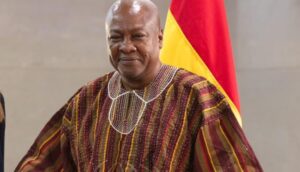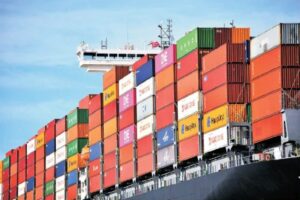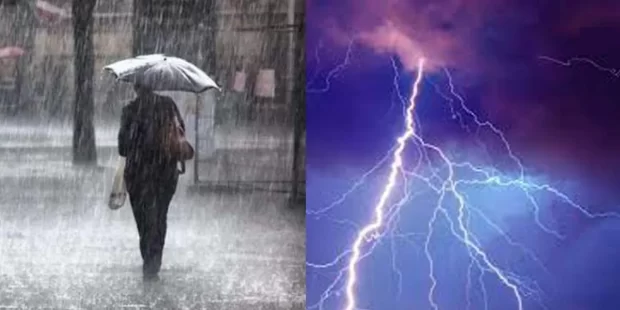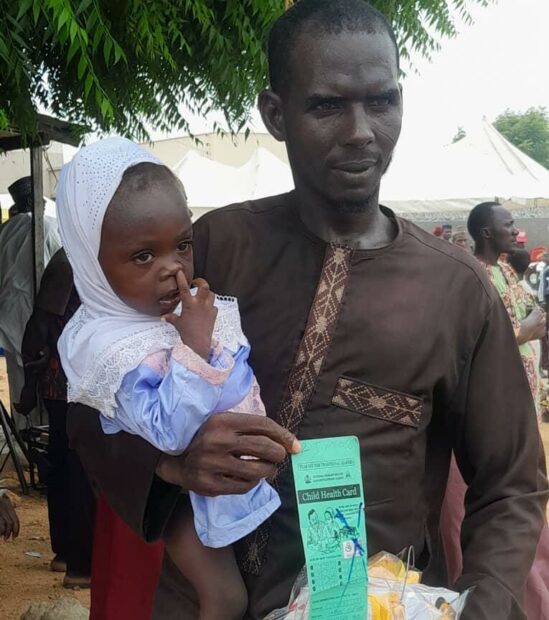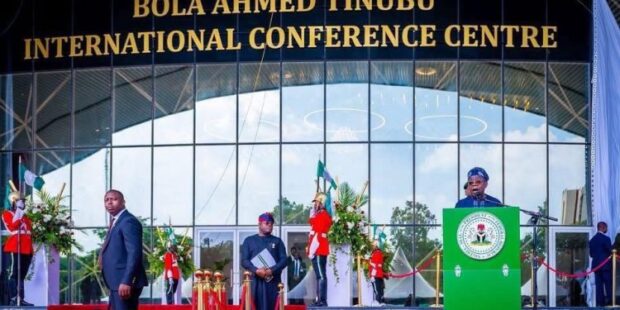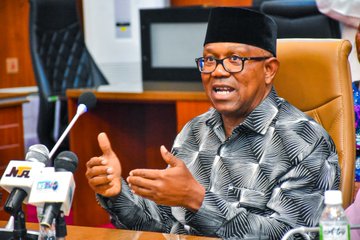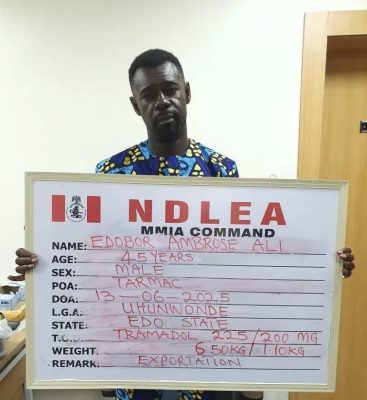

The World Health Organization (WHO) has warned that eight countries, six of them in Africa—including Nigeria, Kenya, and Lesotho—are at risk of running out of life-saving HIV medications. This is due to a freeze on U.S. foreign aid, which has disrupted critical health programs, including the supply of anti-retroviral (ARV) drugs.
U.S. President Donald Trump halted foreign aid on his first day in office as part of a review into government spending. The suspension has affected the U.S. President’s Emergency Plan for AIDS Relief (PEPFAR), a major initiative that has provided treatment to millions of people living with HIV in low-income countries since its launch in 2003.
The WHO chief, Dr. Tedros Adhanom Ghebreyesus, expressed concern that this disruption could undo 20 years of progress in fighting HIV, potentially leading to an additional 10 million HIV cases and three million deaths. Countries such as Nigeria, Kenya, Lesotho, South Sudan, Burkina Faso, and Mali, along with Haiti and Ukraine, are expected to run out of ARV medicines in the coming months.
Dr. Tedros appealed to the U.S. to reconsider its stance, noting the global implications of the aid freeze, not only for the affected countries but also for global health security. The crisis highlights the vulnerability of healthcare programs in resource-limited settings and the need for a coordinated and humane approach to withdrawing foreign aid.
Tagged as:
GlobalHealthCrisis HIVDrugsShortage HIVTreatment PEPFAR USForeignAid
About the author
62-Year-Old Businesswoman Remanded Over $13K Fraud
Nana Ama Nwurueze, a 62-year-old self-styled businesswoman, has been remanded by the Adabraka District Court in Accra for allegedly defrauding another businesswoman, Dorothy Asare, of $13,000. Nwurueze reportedly posed as a wealthy businesswoman with substantial properties, including Ohemaa Plaza in East Legon, fishing vessels in Takoradi, and a house at Airport, to deceive the complainant.The prosecution, led by Chief Inspector Apewa Achana, has charged Nwurueze with defrauding by false pretenses. She was arrested after a bench warrant was issued against her in December last year. Despite pleading not guilty, her bail application was denied, as the court determined she was a flight risk. The case was initially reported to the Airport Police Station in 2021, but attempts to arrest her were unsuccessful until her eventual arrest in March 2024. Following her arrest, she was granted police inquiry bail but went […]
Edem 4Style March 26, 2025
President Mahama Nominates 71 New DCEs Pending Approval
President John Mahama has nominated 71 new District Chief Executives (DCEs) across various districts in Ghana, pending approval by local Assembly members. This move is aimed at strengthening local governance as these executives are expected to play a crucial role in the management of their respective districts.An official statement detailing the nominations was signed by Dr. Callistus Mahama, the Secretary to the President, and addressed to the Minister of Local Government, Chieftaincy, and Religious Affairs.While most districts have their nominees, the nomination for the Kpando district is still pending. The new DCEs will need to be confirmed by the Assembly members in their respective districts before they officially take up their roles.
Edem 4Style March 26, 2025
FIC Freezes Accounts of Bills Micro-Credit Founder, Richard Nii Armah Quaye
The Financial Intelligence Centre (FIC) has frozen all accounts associated with Richard Nii Armah Quaye, the founder of Bills Micro-Credit. This includes accounts linked to Bills Micro-Credit, Quick Credit and Investment Micro-Credit, as well as an account of Romeo-Richlove Kweku Seshie, the Chief Executive Officer of Bills Micro-Credit.The action follows a letter from the FIC, in line with Section 56(1) of the Anti-Money Laundering Act, 2020 (Act 1044), and applies to all accounts connected to the named individuals, pending further instructions. The FIC’s role involves analyzing suspicious transactions related to money laundering, terrorist financing, and other financial crimes.The move comes after a statement from the Ghana Revenue Authority revealing that Nii Armah Quaye is undergoing a personal income tax assessment for over GHS 30 million in unpaid taxes. This freeze is part of regular regulatory oversight to ensure compliance with […]
Edem 4Style March 26, 2025
Over 1,350 ECG Containers Missing from Tema Harbour Amid Procurement Breaches – Energy
The Minister for Energy and Green Transition, John Abdulai Jinapor, has raised significant concerns over the disappearance of more than 1,350 containers belonging to the Electricity Company of Ghana (ECG) from the Tema Harbour. A committee tasked with investigating the matter has uncovered serious procurement breaches that have been ongoing for several years.Jinapor shared a 103-page report on the matter, describing the findings as alarming, with a clear indication of irregularities that have affected the country’s energy sector. The Minister emphasized that law enforcement agencies would be involved to ensure that those responsible for the missing containers and procurement violations are held accountable.The disappearance of the containers and the associated procurement irregularities have sparked concerns about transparency and accountability within Ghana's energy sector, urging the government to take swift action.
Edem 4Style March 26, 2025
Ex-FIFA Chief Blatter and Platini Cleared in Corruption Case
Former FIFA President Sepp Blatter and French soccer legend Michel Platini have been cleared of corruption charges by a Swiss court. The pair were accused of authorizing a 2 million Swiss franc payment to Platini in 2011. The court ruled that there was insufficient evidence to prove the payment was fraudulent, acknowledging their consistent account of an oral agreement for the payment.The decision marks the end of a long-running legal battle, which began in 2015 and resulted in their suspension from football by FIFA. Both Blatter and Platini expressed relief following the verdict. Platini declared that his honor had been restored, while Blatter described the case as a burden that had hung over him for years.Swiss federal prosecutors are reviewing the decision and may appeal to the Swiss Federal Court.
Edem 4Style March 26, 2025
Idris Elba Honored as a Son of Ga Land, Announces Film Studio Project in Accra
On March 25, 2025, renowned British actor and filmmaker Idris Elba was honored as a son of Ga Land in a grand ceremony at the Ga Mantse Palace in Accra. The event, under the reign of King Tackie Teiko Tsuru II, celebrated Elba’s contributions to the African diaspora and his dedication to developing Ghana’s creative industry.Elba’s visit included an exciting announcement: he plans to build a world-class film studio and school on 22 acres of land near Osu Castle. This project aims to provide training, employment, and a creative hub for young Ghanaian talent, with a focus on African cinema.King Tackie Teiko Tsuru II expressed strong support for the initiative, emphasizing the need to guide the youth and advance the creative arts. The announcement was met with applause and marked a significant moment for Ghana’s growing role in the global […]
Edem 4Style March 26, 2025
Related
DJ Abass Set to Bring Authentic Nigerian Flavors to London with My Tasty Naija Food Festival
From YouTube Sensation to Real-Life Festival The popular YouTube series My Tasty Naija is stepping off the screen and into real life with its first-ever food festival in London . Set for Sunday, July 13, 2025 , at the Chingford Rugby Club , this event will celebrate Nigerian and African cuisine like never before. What began as a digital journey through Nigerian food culture in January 2024 has grown into a full-blown cultural movement. Created by British-Nigerian media entrepreneur and DJ, Abass Tijani (DJ Abass) , the show quickly became a go-to platform for lovers of Nigerian food across the UK and beyond. A Culinary Journey Across Continents Since its launch, My Tasty Naija has taken viewers on a flavorful adventure — from the best suya spots in Peckham to top jollof rice makers in Wembley . One standout episode […]
Mujahid Yusuf June 15, 2025
NiMet Warns of Three-Day Thunderstorms and Heavy Rain Across Nigeria
NiMet Predicts Widespread Rain and Thunderstorms The Nigerian Meteorological Agency (NiMet) has warned that thunderstorms and heavy rains will affect many parts of Nigeria from Saturday to Monday . This weather outlook was released on Friday in Abuja and shared by the News Agency of Nigeria (NAN). The forecast covers all regions of the country, with varying intensity and timing across states. Saturday: Storms Begin in the North and Central Zones Early on Saturday, thunderstorms were expected in parts of: Taraba Kebbi Zamfara Kaduna Adamawa Later in the day, thunderstorms with rain were likely in: Borno, Sokoto, Gombe, and Bauchi In the North-Central region , early morning storms were predicted for: Benue, Plateau, Niger, FCT, and Nasarawa By afternoon, thunderstorms and rain were expected to spread to: FCT, Niger, Nasarawa, Benue, Kwara, Kogi, and Plateau Cloudy skies with morning rain […]
Mujahid Yusuf June 15, 2025
Polio: Kano Man Narrates How UNICEF and Deputy Governor Spurred Him to Immunise His Child
Father Changes Mind After Hearing Officials Speak Dan Jumai Ubale, from Bunkure Local Government Area in Kano , decided to immunise his two-year-old daughter after attending a polio campaign event. He was moved by speeches given by the Deputy Governor , Comrade Aminu Abdulsalam , and the UNICEF Chief in Kano , Mr. Rahama Rihood Mohammed Farah . He later returned with his daughter, Hafsat Musbahu , for immediate vaccination. He was joined by his wife, Hajiya Sahura Balarabe . “I Thought the Vaccine Was Harmful” Ubale admitted that he once believed the polio vaccine was dangerous . “I thought it was a plan by Western countries to reduce Africa’s population.” But after listening to the officials speak, he said his views completely changed. “Now I know the vaccine protects children. I don’t want my daughter to get sick or […]
Mujahid Yusuf June 15, 2025
“I Have No Regret at All” – Wike Defends Naming Abuja Conference Centre After Tinubu
Wike Stands by Decision to Name Conference Centre After Tinubu Minister of the Federal Capital Territory (FCT), Nyesom Wike , has defended the renaming of the Abuja International Conference Centre after President Bola Tinubu . He made the remarks in Abuja on Friday , during the inauguration of the completed 15-kilometre left-hand service carriage way of OSEX Stage II , from Ring Road I to Wassa Junction . The decision to rename the facility as the Tinubu International Conference Centre sparked criticism from some members of the public. Others questioned the N39 billion spent on its renovation, calling it a misplaced priority . “I Have No Regret at All,” Says Wike In response to the backlash, Wike said: “I have done it, and I have no regret at all.” He asked why some people were criticising the naming of the […]
Mujahid Yusuf June 15, 2025
Peter Obi Calls for National Emergency Over Benue Killings
Obi Demands National Emergency Over Benue Violence Former Labour Party presidential candidate Peter Obi has condemned the recent wave of killings in Benue State . More than 200 lives were reportedly lost in a single attack, with many victims being women, children, soldiers, and displaced persons. In a statement released on Sunday, Obi said the tragedy has become too frequent in Nigerian life , and called for a national emergency to address the situation. He described the attacks as not just violence, but a failure of leadership and a moral stain on the country’s conscience. “Every life lost is a Nigerian life—each one precious, each one irreplaceable.” Government Must Act, Not Just React Obi questioned the ability of the government at all levels to protect citizens when such large-scale loss of life continues unchecked. “The primary duty of any government […]
Mujahid Yusuf June 15, 2025
Iran-Bound Businessman Nabbed at Port Harcourt Airport for Ingesting 53 Cocaine Wraps
Cocaine Found in Swallowed Wraps A 44-year-old man, Ezemokwe Chukwuebuka Christian , was arrested at Port Harcourt International Airport on 7 June . He was trying to board a Qatar Airways flight to Tehran , Iran, when he was stopped by NDLEA officers . A body scan showed signs of drug ingestion. He later excreted 53 wraps of cocaine in six batches. The total weight was 1.172 kilograms . The arrest was announced in a statement by Femi Babafemi of the NDLEA . Ezemokwe admitted to trafficking drugs for two years. He said he had made several trips between West Africa and Iran . Recent Trend Seen in Iran-Bound Flights Less than two weeks earlier, another man, Chinedu Leonard Okigbo, 60 , was caught at Kano International Airport with 65 pellets of cocaine in his stomach while trying to fly […]
Mujahid Yusuf June 15, 2025




